What Are the Essential Tools and Technologies in an AI Stack?
As we approach 2025, the potential of artificial intelligence (AI) continues to revolutionize various industries, presenting exciting opportunities for entrepreneurs. The landscape of business is rapidly changing, driven by advancements in AI technologies that enhance efficiency, improve decision-making, and create personalized experiences. From AI-driven healthcare solutions to intelligent automation in manufacturing, the possibilities are vast. Businesses that harness AI can optimize operations, reduce costs, and offer innovative products and services that cater to evolving consumer needs.

In this article, we explore the best 15 AI business ideas poised for success in 2025, highlighting trends and applications that will shape the future. Whether you’re a seasoned entrepreneur looking to pivot your business model or a newcomer eager to dive into the AI sector, these ideas provide a roadmap for leveraging technology to drive growth and sustainability. Join us as we delve into these cutting-edge concepts that are not only transformative but also offer the potential for significant profitability and impact in the coming years.
Table of ContentUnderstanding AIWhat is AI Business Ideas?
Best 15 AI Business Ideas in 2025
∘ 1. AI-Powered Personal Assistants
∘ 2. AI in Healthcare
∘ 3. AI-Driven Content Creation
∘ 4. AI-Based Cybersecurity Solutions
∘ 5. Smart Retail Solutions
∘ 6. AI for Supply Chain Optimization
∘ 7. AI in Financial Services
∘ 8. AI-Enhanced Education Tools
∘ 9. AI in Agriculture
∘ 10. AI-Powered Customer Support
∘ 11. AI for Real Estate
∘ 12. AI in Recruitment
∘ 13. AI-Powered Fitness and Wellness Apps
∘ 14. AI for Travel and Hospitality
∘ 15. AI in Home Automation
ConclusionUnderstanding AI
Understanding artificial intelligence (AI) involves grasping its core principles, applications, and potential impacts on society. At its essence, AI refers to the development of computer systems that can perform tasks typically requiring human intelligence, such as learning, reasoning, problem-solving, and language comprehension. The field encompasses various sub-disciplines, including machine learning, natural language processing, and computer vision, each contributing to the creation of intelligent systems that can analyze vast amounts of data, identify patterns, and make predictions.
AI is revolutionizing industries, from healthcare and finance to entertainment and transportation, enabling businesses to enhance efficiency, personalize services, and drive innovation. As AI technology continues to evolve, ethical considerations surrounding data privacy, bias, and the implications of automation become increasingly important.
Understanding AI requires a balance of technical knowledge and awareness of its societal implications, fostering informed discussions about its role in shaping the future. As we navigate this rapidly changing landscape, embracing AI’s potential while addressing its challenges will be crucial for harnessing its benefits for individuals and communities alike.
What is AI Business Ideas?AI business ideas refer to innovative concepts and ventures that leverage artificial intelligence technologies to create value, solve problems, and improve efficiency across various industries. These ideas can encompass a wide range of applications, from developing AI-powered software and tools that automate mundane tasks to creating intelligent systems that enhance decision-making processes. Businesses can harness AI for personalized marketing strategies, predictive analytics, customer service chatbots, and much more, allowing them to stay competitive in an increasingly digital landscape.
The versatility of AI opens doors to new products and services that can significantly enhance user experiences and operational efficiency. For instance, AI can be utilized in healthcare for diagnostics, in finance for fraud detection, and in logistics for optimizing supply chain management. Entrepreneurs can explore opportunities in emerging fields like AI ethics, explainability, and bias mitigation, ensuring responsible AI implementation.
As AI continues to advance, the potential for innovative business ideas will grow, offering a pathway for entrepreneurs to not only drive profitability but also contribute positively to society by addressing real-world challenges.
Best 15 AI Business Ideas in 2025As we enter 2025, artificial intelligence is poised to redefine industries and create exciting entrepreneurial opportunities. This list explores the best 15 AI business ideas that leverage cutting-edge technology to enhance efficiency, improve customer experiences, and drive innovation, paving the way for sustainable growth in the digital economy.
1. AI-Powered Personal Assistants
AI-powered personal assistants are poised to transform how individuals and businesses manage tasks and communication in 2025. These intelligent systems leverage natural language processing (NLP) and machine learning to understand and respond to user queries, schedule appointments, and automate daily routines. Unlike traditional virtual assistants, the next generation of AI personal assistants will offer more personalized experiences by learning users’ preferences, habits, and routines over time.
They will integrate seamlessly with various applications, devices, and smart home technologies, enabling users to control their environments more efficiently. Businesses can also utilize these assistants to streamline customer interactions, manage schedules, and improve productivity. With advancements in sentiment analysis, these AI assistants will not only respond to commands but also gauge user emotions, providing empathetic interactions that enhance user satisfaction.
The potential for integration with health monitoring systems will allow personal assistants to remind users about medications, track wellness goals, and provide mental health support. As voice recognition and understanding improve, these AI-powered assistants will become indispensable tools for managing both personal and professional lives, leading to increased efficiency and enhanced quality of life.
2. AI in Healthcare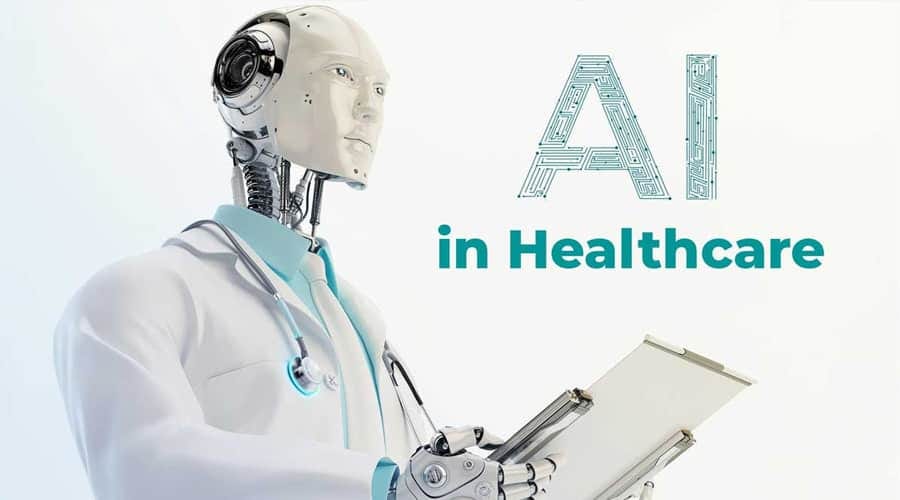
AI in healthcare is revolutionizing patient care, diagnosis, and operational efficiency, making it one of the most promising business ideas for 2025. Advanced algorithms and machine learning techniques enable healthcare providers to analyze vast amounts of data, leading to improved diagnostics, personalized treatment plans, and proactive patient monitoring. AI-powered tools can process medical images, detect anomalies, and assist in diagnosing conditions like cancer or heart disease with remarkable accuracy, often outperforming human specialists.
Moreover, AI can optimize administrative tasks such as scheduling, billing, and patient management, reducing operational costs and allowing healthcare professionals to focus more on patient care. Telemedicine is another area where AI can enhance service delivery, offering remote consultations and monitoring via intelligent chatbots and virtual assistants. By integrating AI with wearable devices, healthcare providers can continuously track patient health metrics and predict potential health issues before they escalate.
The growing emphasis on preventive care will further drive demand for AI solutions that promote healthier lifestyles through personalized health recommendations. As regulations evolve and technology advances, AI in healthcare presents immense opportunities for innovation and improvement, ultimately leading to better patient outcomes and a more efficient healthcare system.
3. AI-Driven Content Creation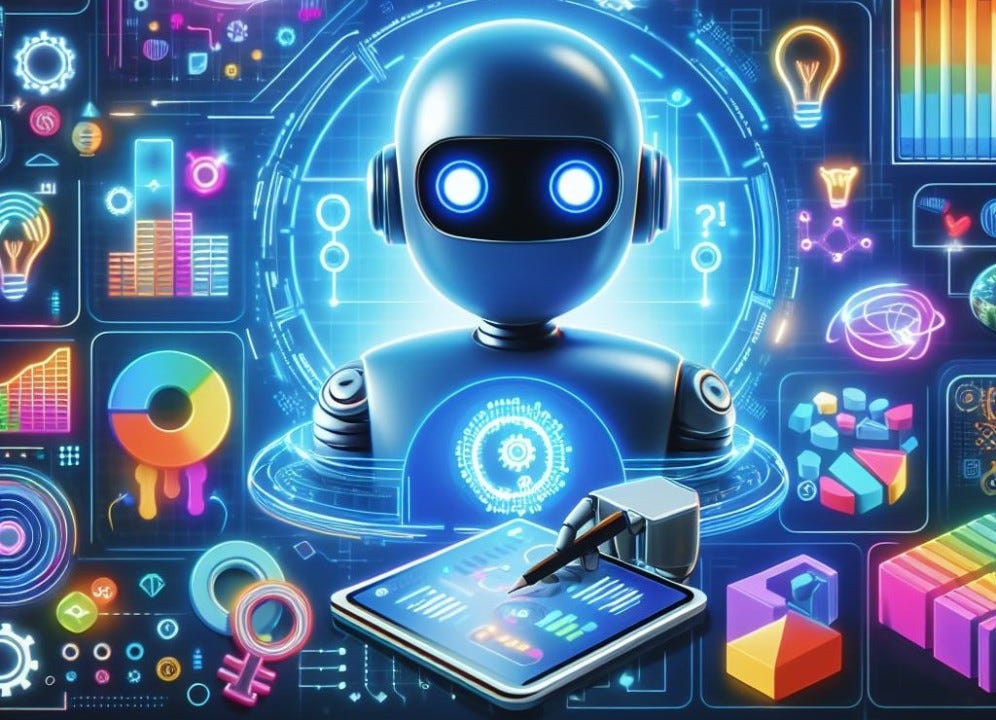
AI-driven content creation is transforming the way businesses produce and distribute marketing materials, articles, and social media posts. By 2025, AI tools that leverage natural language processing and machine learning will enable companies to generate high-quality content tailored to their target audiences quickly and efficiently. These platforms can analyze audience preferences, trending topics, and SEO keywords, ensuring that the content created is relevant and engaging.
With capabilities to produce various content formats, from blog posts and articles to video scripts and social media updates, AI can streamline the content creation process, significantly reducing the time and resources required. Additionally, AI can assist in maintaining brand consistency and tone across different channels, further enhancing marketing strategies. Some advanced AI tools will even be able to create personalized content for individual users based on their behavior and preferences, improving engagement rates.
Moreover, AI can enhance creative processes by suggesting ideas, headlines, and visual elements that resonate with audiences. As demand for content continues to grow in the digital age, AI-driven content creation will become an essential asset for businesses seeking to optimize their marketing efforts and stay competitive.
4. AI-Based Cybersecurity Solutions
As cyber threats become increasingly sophisticated, AI-based cybersecurity solutions will be crucial for safeguarding sensitive data and systems by 2025. These intelligent systems utilize machine learning algorithms to detect anomalies, predict potential threats, and respond in real time to security breaches. Unlike traditional cybersecurity measures that rely on predefined rules, AI can learn from historical data and adapt to evolving threats, offering a more proactive approach to security. Businesses can deploy AI-driven tools for continuous monitoring of networks and systems, identifying vulnerabilities before they can be exploited.
Furthermore, these solutions can automate incident response, significantly reducing the time it takes to address security breaches and minimizing potential damage. AI can also enhance threat intelligence by analyzing data from multiple sources, allowing organizations to stay ahead of emerging threats and make informed security decisions. The integration of AI with existing security frameworks will enable organizations to streamline their operations and allocate resources more effectively.
As the demand for robust cybersecurity measures grows, AI-based solutions will become a vital component of comprehensive security strategies, ensuring the protection of sensitive information and maintaining customer trust in an increasingly digital world.
5. Smart Retail Solutions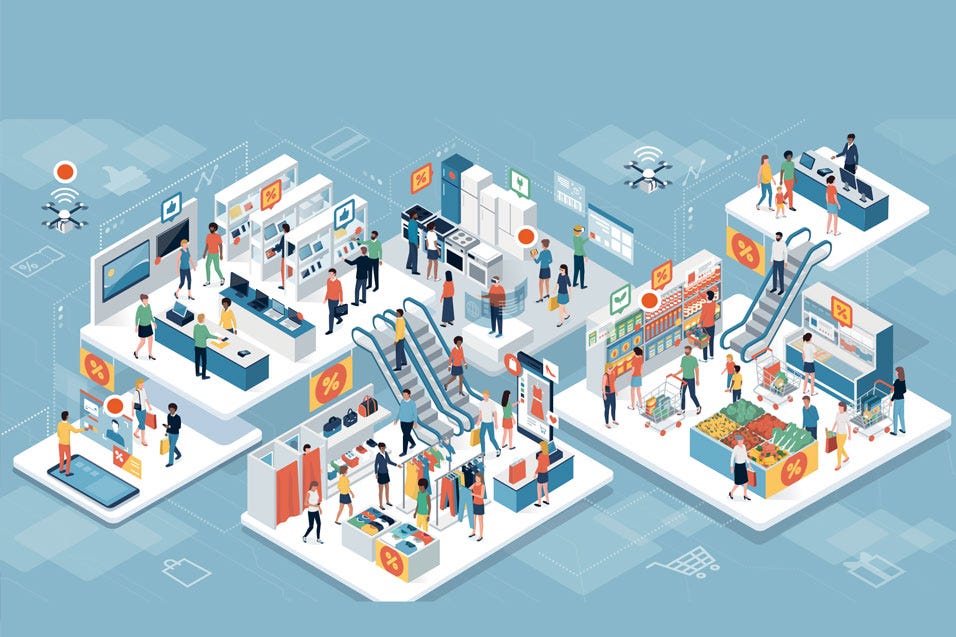
Smart retail solutions are set to redefine the shopping experience in 2025, blending physical and digital environments through the power of artificial intelligence. Retailers can leverage AI technologies to analyze consumer behavior, optimize inventory management, and personalize marketing efforts. Smart shelves equipped with sensors can track inventory levels in real time, automatically notifying staff when restocking is necessary, thereby reducing operational inefficiencies.
AI can also enhance customer experiences through personalized recommendations based on past purchases, preferences, and shopping patterns. Virtual fitting rooms, powered by augmented reality and AI, allow customers to try on clothes virtually, improving customer engagement and reducing return rates. Additionally, AI-driven chatbots can provide instant customer support, assisting shoppers with inquiries and facilitating transactions.
By analyzing data from various sources, retailers can gain insights into market trends, customer preferences, and competitive dynamics, allowing them to make informed decisions and adapt quickly to changing market conditions. As smart retail solutions continue to evolve, they will empower retailers to enhance operational efficiency, improve customer satisfaction, and drive sales growth, making them a critical aspect of the future retail landscape.
6. AI for Supply Chain Optimization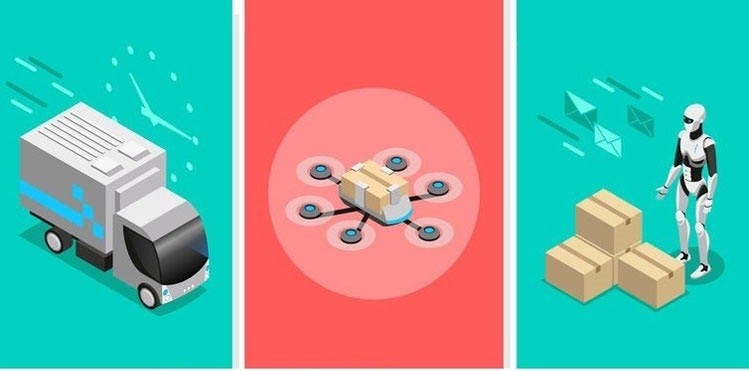
AI for supply chain optimization is transforming how businesses manage logistics and operations, making it a critical business idea for 2025. By leveraging advanced algorithms and predictive analytics, companies can gain real-time insights into their supply chains, allowing them to make informed decisions and optimize processes. AI can analyze historical data, monitor market trends, and assess various factors such as demand fluctuations and supplier performance, enabling organizations to forecast inventory needs more accurately and reduce excess stock.
Moreover, AI-powered tools can streamline transportation management by identifying the most efficient routes, predicting delivery times, and minimizing operational costs. Automated systems can also enhance risk management by detecting potential disruptions in the supply chain, allowing businesses to develop contingency plans proactively.
The integration of AI with Internet of Things (IoT) devices can further enhance visibility throughout the supply chain, providing organizations with real-time tracking of shipments and assets. As businesses seek to improve efficiency, reduce costs, and enhance customer satisfaction, AI-driven supply chain optimization will play a pivotal role in driving growth and competitiveness in a rapidly evolving market.
7. AI in Financial Services
AI in financial services is set to revolutionize the industry by 2025, offering enhanced efficiency, accuracy, and customer experiences. Financial institutions can leverage AI algorithms to analyze vast amounts of data, enabling them to make informed decisions on lending, investments, and risk management. For example, AI-driven credit scoring models can assess a borrower’s creditworthiness more accurately than traditional methods, leading to better lending decisions and reduced defaults.
Additionally, AI can enhance fraud detection by analyzing transaction patterns and flagging suspicious activities in real-time, protecting both the institution and its customers. Robo-advisors powered by AI can provide personalized investment recommendations based on individual risk profiles and financial goals, making wealth management more accessible to a broader audience.
Furthermore, AI chatbots can offer customer support, answer inquiries, and assist with transactions 24/7, significantly improving customer service efficiency. As the financial services sector continues to embrace technology, AI will play a critical role in driving innovation, enhancing compliance, and providing a competitive edge in an increasingly digital marketplace.
8. AI-Enhanced Education Tools
AI-enhanced education tools are poised to transform learning experiences by 2025, providing personalized and adaptive educational solutions for students and educators alike. These tools leverage machine learning algorithms to assess individual learning styles, strengths, and weaknesses, enabling customized learning pathways that cater to each student’s unique needs. Intelligent tutoring systems can offer real-time feedback and support, helping students grasp complex concepts and improve their performance.
Moreover, AI can analyze data from assessments and classroom interactions to provide educators with valuable insights into student progress, allowing them to tailor their teaching strategies accordingly. Virtual classrooms powered by AI can facilitate remote learning, offering interactive and engaging experiences that mimic in-person instruction. Additionally, AI-driven administrative tools can streamline tasks such as grading, scheduling, and resource allocation, freeing educators to focus more on teaching and mentorship.
As the demand for flexible and effective learning solutions grows, AI-enhanced education tools will play a vital role in shaping the future of education, making quality learning accessible to students worldwide and fostering lifelong learning.
9. AI in Agriculture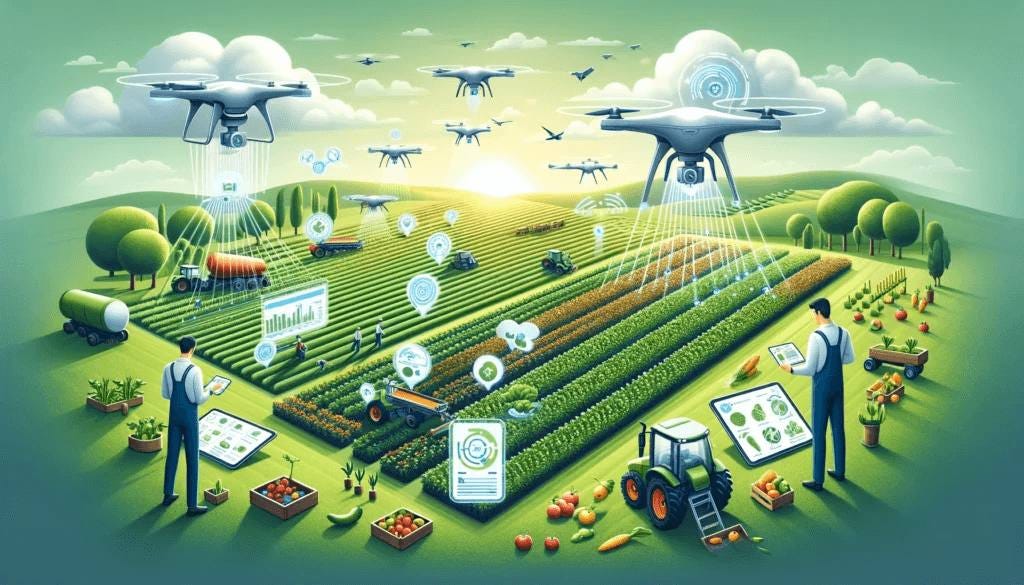
AI in agriculture represents a game-changing approach to modern farming practices, providing innovative solutions that enhance productivity and sustainability by 2025. By utilizing advanced machine learning algorithms and data analytics, farmers can optimize crop yields, monitor soil health, and manage resources more efficiently. AI-driven precision agriculture technologies, such as drones and sensors, can collect real-time data on weather conditions, soil moisture levels, and crop health, allowing farmers to make informed decisions regarding planting, irrigation, and fertilization.
Additionally, AI can help predict pest outbreaks and disease risks, enabling proactive measures to protect crops and minimize losses. Automated systems powered by AI can streamline operations such as planting, harvesting, and equipment maintenance, reducing labor costs and increasing efficiency. The integration of AI with Internet of Things (IoT) devices will further enhance farm management, providing farmers with actionable insights that lead to improved sustainability and reduced environmental impact.
As the agricultural sector seeks to address challenges such as climate change and food security, AI will play a pivotal role in driving innovation and ensuring a more resilient and productive food system.
10. AI-Powered Customer Support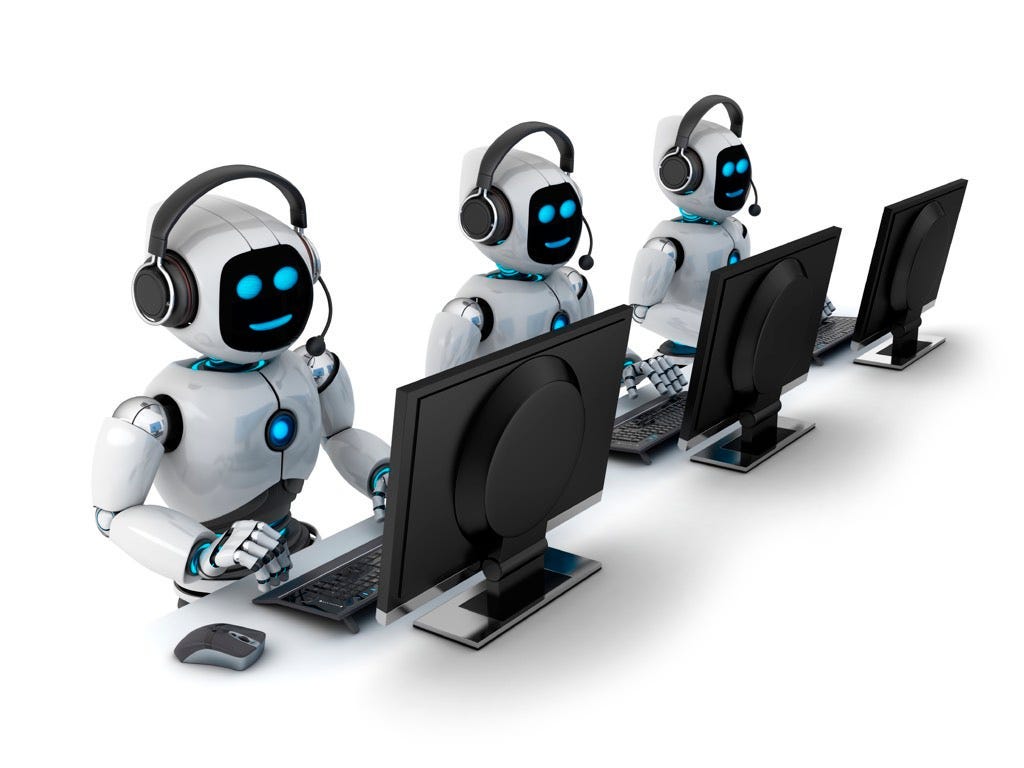
AI-powered customer support is revolutionizing how businesses interact with their customers, providing efficient and personalized service solutions by 2025. With the rise of AI-driven chatbots and virtual assistants, companies can offer 24/7 support, addressing customer inquiries and resolving issues in real-time. These AI systems leverage natural language processing to understand and respond to customer queries, ensuring accurate and context-aware interactions.
By analyzing historical customer data, AI can anticipate needs and proactively offer solutions, enhancing overall customer satisfaction. Furthermore, AI can assist human support agents by providing them with relevant information and suggestions during interactions, allowing for more efficient problem-solving. The ability to learn from past interactions enables AI to continuously improve its performance, providing increasingly accurate and relevant assistance over time.
Additionally, AI can analyze customer feedback and sentiment, enabling businesses to identify areas for improvement and tailor their services accordingly. As companies prioritize customer experience, AI-powered support solutions will become essential tools for enhancing engagement, building loyalty, and driving business growth in an increasingly competitive market.
11. AI for Real Estate
AI for real estate is transforming how properties are bought, sold, and managed, making it one of the most promising business ideas for 2025. By leveraging machine learning algorithms and data analytics, real estate professionals can gain valuable insights into market trends, property values, and buyer preferences. AI-driven platforms can analyze vast amounts of data from various sources, enabling agents to provide more accurate property valuations and investment recommendations.
Additionally, AI can streamline property searches by matching buyers with listings that fit their preferences, improving the overall home-buying experience. Virtual reality (VR) and augmented reality (AR) technologies powered by AI can offer immersive property tours, allowing potential buyers to explore homes remotely and enhancing engagement.
Furthermore, AI can optimize property management by predicting maintenance needs, monitoring energy usage, and improving tenant communication. As the real estate market continues to evolve, AI will play a crucial role in enhancing operational efficiency, improving customer experiences, and driving innovation in property transactions, ultimately reshaping the future of the industry.
12. AI in Recruitment
AI in recruitment is reshaping the hiring landscape, providing innovative solutions that enhance efficiency and improve candidate experiences by 2025. By leveraging machine learning algorithms, recruitment platforms can analyze resumes and applications at scale, identifying the best candidates based on predefined criteria. This automation significantly reduces the time spent on manual screening, allowing HR professionals to focus on building relationships with candidates and making informed hiring decisions.
AI-driven tools can also enhance candidate matching by analyzing skills, experiences, and cultural fit, ensuring that employers find individuals who align with their company values. Moreover, AI can help eliminate bias in the recruitment process by providing objective assessments of candidates and promoting diversity and inclusion within organizations. Chatbots powered by AI can facilitate communication with candidates, answer inquiries, and schedule interviews in real time.
As the demand for skilled talent grows, AI will play a critical role in streamlining recruitment processes, improving candidate experiences, and helping organizations attract top talent in a competitive job market.
13. AI-Powered Fitness and Wellness Apps
AI-powered fitness and wellness apps are set to revolutionize how individuals approach health and fitness by 2025. These applications leverage machine learning algorithms to provide personalized workout and nutrition plans tailored to individual goals, preferences, and fitness levels. By analyzing user data such as activity levels, dietary habits, and health metrics, AI can offer actionable insights and recommendations, helping users achieve their fitness objectives more effectively.
Additionally, AI can facilitate real-time coaching through virtual trainers, offering feedback and encouragement during workouts, thereby enhancing user engagement and motivation. Integration with wearable devices allows for continuous monitoring of health metrics, enabling users to track progress and adjust their routines as needed. Furthermore, AI can analyze trends in user data to provide community support and create challenges, fostering social connections among users.
As the emphasis on health and well-being continues to grow, AI-powered fitness and wellness apps will play a vital role in promoting healthier lifestyles, making fitness more accessible and enjoyable for people of all backgrounds.
14. AI for Travel and Hospitality
AI for travel and hospitality is transforming how travelers plan and experience their journeys, creating innovative solutions that enhance customer satisfaction and operational efficiency by 2025. AI-driven platforms can analyze user preferences, past travel experiences, and real-time data to offer personalized travel recommendations, including flights, accommodations, and activities. This level of personalization improves the overall booking experience and encourages customer loyalty.
Additionally, AI can enhance customer service through chatbots and virtual assistants, providing instant support for inquiries and booking modifications, thus improving operational efficiency for businesses. In the hospitality sector, AI can streamline check-in processes, optimize room pricing based on demand, and personalize guest experiences by anticipating their needs.
Furthermore, AI can analyze travel trends and customer feedback, helping businesses identify opportunities for improvement and tailor their offerings accordingly. As the travel industry continues to recover and evolve, AI will play a pivotal role in enhancing customer experiences, optimizing operations, and driving growth, ultimately reshaping the future of travel and hospitality.
15. AI in Home Automation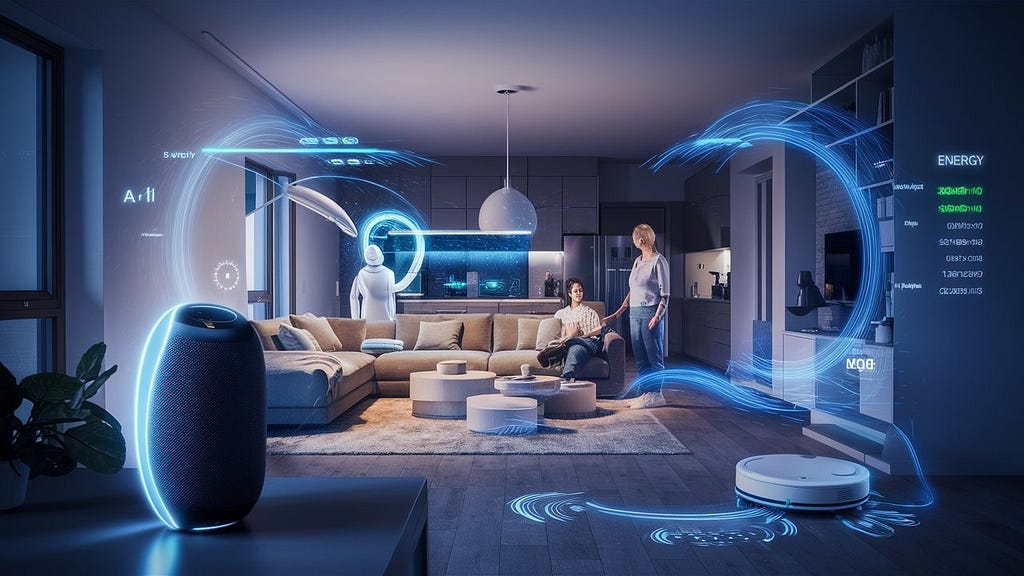
AI in home automation is revolutionizing the way individuals manage their living spaces, creating smarter, more efficient homes by 2025. These intelligent systems leverage machine learning and IoT devices to automate tasks, enhance security, and improve energy management. By integrating AI with smart home devices, homeowners can control lighting, heating, and appliances remotely, optimizing energy usage and reducing costs.
AI-driven security systems can analyze video feeds, detect unusual activities, and send alerts to homeowners, providing peace of mind and enhancing safety. Voice-activated assistants powered by AI can respond to commands, manage schedules, and provide information, making everyday tasks more convenient. Additionally, AI can learn user preferences and routines, adjusting settings automatically for comfort and efficiency.
The growing demand for sustainable living solutions will drive the adoption of AI in home automation, enabling homeowners to monitor and reduce their energy consumption effectively. As technology continues to advance, AI will play a crucial role in creating connected, intelligent homes that enhance comfort, convenience, and security for residents.
ConclusionIn conclusion, the emergence of artificial intelligence is reshaping the business landscape and providing countless opportunities for entrepreneurs willing to embrace innovation. The best 15 AI business ideas for 2025 offer a glimpse into a future where technology and human creativity converge to solve complex problems and enhance everyday experiences. From personalized AI solutions in healthcare to smart automation in logistics, these concepts not only promise profitability but also the potential to drive societal change and improve quality of life. As we move forward, it will be crucial for entrepreneurs to stay informed about AI advancements and market trends, allowing them to adapt and capitalize on new opportunities.
Moreover, fostering collaboration with AI experts and embracing a mindset of continuous learning will be key to thriving in this dynamic environment. By leveraging the power of AI, businesses can not only gain a competitive edge but also contribute to a more sustainable and efficient future. As you consider your next venture, keep these innovative ideas in mind, and be prepared to shape the future of your industry with the transformative power of artificial intelligence.
Best 15 AI Business Ideas in 2025 was originally published in Coinmonks on Medium, where people are continuing the conversation by highlighting and responding to this story.
